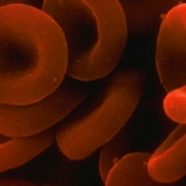Functional Testing and Hormone Levels with Hypothyroidism
Did your blood tests for hypothyroidism come back as being normal even though you suffer from fatigue, brain fog, hair loss, depression, or weight gain? Do your hormone levels come back as being normal or within the normal reference range, yet you are still struggling with fertility issues? Many doctors dismiss thyroid symptoms because of an incomplete blood test or ranges that are too wide. Similarly, when you have difficulty conceiving, and the lab values appear to be within a normal reference range, you are diagnosed as having infertility. In functional medicine, however, we use blood tests to screen for hypothyroidism before it gets too advanced for most doctors to catch. In the case of infertility, we use functional testing and ranges that help us evaluate your hormone levels even when they appear to be “normal”. Functional levels of hormones with hypothyroidism and fertility Functional medicine addresses the underlying causes of symptoms instead of overriding them with drugs or surgery. One tool we use to accomplish this is to interpret blood tests using functional ranges, which outline the parameters of good health. In contrast, the ranges most doctors use are based on a bell-curve analysis of all the people who visited that lab over a certain period of time, many of whom are very sick. These lab ranges have broadened over the last few decades as health of the American population has declined. As a result, many people with real health problems are told they’re ok because their results fall within these ranges. For instance, the lab ranges for hypothyroidism are often overly wide so that many people are told they’re fine when in fact they have hypothyroidism. Another example, is if you have fertility issues, and your progesterone levels appear to be within the reference range, yet they are functionally low and this may be contributing to your luteal phase deficiency. Looking for patterns that contribute to hypothyroidism and infertility Because functional medicine is based on an in-depth knowledge of human physiology and how various systems in the body work together, we also look at a blood test for patterns instead of just looking at individual markers. By doing this, we see how these different systems influence one another to cause a constellation of symptoms. For instance, instead of just looking at a single lab value, we may evaluate immune, hormonal, blood sugar, or stress imbalances that may be causing hypothyroid symptoms, or fertility issues. Of course, there are many other factors that you may not be aware of to be contributing to your low thyroid, or infertility. Ready to find out more? Schedule your initial visit to learn...
Read MoreThe Relationship Between Gluten, Anxiety, and Hashimoto’s Hypothyroidism
Suffering from anxiety is like being held prisoner in a place where worry infuses every thought, your heart pounds, and the world seems jarring and disorienting. With anti-anxiety medications among the most commonly prescribed drugs in the United States, Americans are clearly suffering. Though medications relieve the symptoms, they don’t address the cause. Some causes of anxiety are obvious: stimulants such as caffeine, weight loss pills, energy drinks, or supplements that increase energy. Psychological or emotional stressors, such as having to speak in public or prepare for a major exam, can also bring on bouts of anxiety. However, chronic anxiety can have lesser-known causes that, if managed, can relieve symptoms and negate the need for medication. Although the cause of anxiety can sometimes be neurologically complex, other times it can be as simple as making changes to your diet and lifestyle. Unmanaged Hashimoto’s hypothyroidism The majority of cases of hypothyroidism in this country are autoimmune, meaning the immune system attacks and destroys the thyroid gland. When an autoimmune attack flares, damage to the gland spills thyroid hormone into the bloodstream, which can amp up metabolism and cause symptoms of anxiety, insomnia, and heart palpitations. In this case proper management of the autoimmune thyroid condition can help subdue anxiety. GAD autoimmunity and anxiety GAD stands for glutamic acid decarboxylase, an enzyme that triggers production of the brain’s primary calming chemical, called GABA. Some people develop an autoimmune reaction to GAD, which means their immune system erroneously attacks and destroys it. As a result, they can’t make enough GABA to calm the brain and anxiety goes up. GAD autoimmunity is also linked to OCD, motion sickness, vertigo, tics, and other symptoms. GAD autoimmunity is more common in those with gluten sensitivity or celiac disease. A strong link has been shown between Hashimoto’s and gluten intolerance. Gluten and anxiety Gluten has other links to anxiety. Gluten has been shown to trigger inflammation in the brain and autoimmune attacks against brain tissue, which can cause anxiety. Although a gluten-free diet is an important first step, many people find they also need to eliminate other foods such as dairy, eggs, or other grains to dampen immune flare-ups and anxiety. An anti-inflammatory autoimmune diet is a good beginning to address brain health. Because people with Hashimoto’s hypothyroidism typically are gluten intolerant or sensitive, this is another reason to avoid...
Read MoreHormone Effects on Sleep in Women: Estrogen and Progesterone
Is there anything worse than hitting the pillow exhausted from a long day only to toss and turn for hours, unable to fall asleep? Or perhaps you fall asleep but bolt awake a few hours later? Although sleep difficulties can have many causes, hormonal fluctuations can steal many hours of precious sleep. Low progesterone and problems sleeping Low progesterone seems to have become increasingly common among women and can play a large role in sleep problems. Progesterone is referred to as the “calming hormone” whereas estrogen is more excitatory, and low progesterone is associated with sleeping difficulties. Chronic stress can impact progesterone levels. Every time you experience stress your adrenal glands release cortisol, a stress hormone. When demand for cortisol is constantly high the body borrows pregnenolone, which is needed to make progesterone and other hormones, to make cortisol instead. This is called “pregnenolone steal” because the body steals pregnenolone from the hormone cascade in order to keep pace with the demands of stress. Stopping pregnenolone steal may help improve hormone function and improve sleep. Strategies for stopping pregnenolone steal include an anti-inflammatory diet, which eases the body’s burden of stress. You may also need to work on restoring gut health, taming chronic inflammation, or managing an autoimmune disease appropriately, approaches that benefit from the guidance of an experienced practitioner. Estrogen and sleep problems When estrogen is too high and progesterone too low, it can cause sleep problems for the obvious reason—there is too much of the excitatory estrogen compared to the calming progesterone and the brain can’t calm down enough to rest. A proper ratio between the two is important. Low estrogen can also contribute to sleep problems. Estrogen is intimately connected with serotonin, a brain chemical that is converted to the sleep hormone melatonin. Low estrogen may lead to low serotonin activity and contribute not only to sleep problems but also depression and anxiety. The female brain is highly dependent on sufficient estrogen for normal function in general, and low estrogen can also cause symptoms that include brain fog and memory loss. Strategies to support hormone balance Tending to adrenal function and other health issues may help correct hormonal imbalances. This includes not only reducing lifestyle stress, but also eliminating dietary stressors. Eating a diet lower in carbohydrates to prevent blood sugar swings, avoiding foods that cause an immune reaction, not drinking too much alcohol, tending to bacterial gut infections and other aspects of digestive health, and supporting immune balance are all whole-body approaches that can foster proper hormone function and improve...
Read MoreInfertility: Common Causes
The following are some of the common causes infertility, and it is by no means an exhaustive list. Ovarian Insufficiency Declining ovarian function affects the total number of available follicles in the body, and that is what reduce the odds of conception. Although estrogen continues to be produced in the body the ovulation does not occur, which also leads to a decline of progesterone levels. Luteal Phase Deficiency In some women, ovulation may occur normally but the levels of progesterone during the luteal phase are insufficient. Even if the egg is fertilized, this progesterone deficiency may disrupt implantation, or not sustain the pregnancy. Some of the causes of luteal phase deficiency include endometriosis, abnormal follicle development, or most commonly is a result of inadequate progesterone production. Polycystic Ovarian Syndrome (PCOS) PCOS is the most common hormone disorder affecting women of reproductive age and is closely associated with insulin resistance and metabolic syndrome. Large numbers of women with PCOS experience cycles without the ovulation (or, anovulation), and many experience unexplained infertility. Endometriosis Endometriosis is found in more than 50 percent of women with unexplained infertility, and the high cortisol (stress hormone) and prolactin levels induced by stress have been suggested to play an important role in the development of this condition. Thyroid Deficiency Because your thyroid hormones are affected by other hormones in the body, its dysfunction, or imbalance, even with the labs that yield normal values, may be another cause of infertility. A thyroid hormone treatment and/or support may in fact be in part a solution to restore a regular menstrual pattern. Stress Stress, or more specifically the stress hormone (cortisol) can have a profound effect on the ability to conceive, largely because of its impact on the overall hormone balance in the body. Cortisol imbalances, which can be evaluated with a simple test, have the capacity to: exacerbate both estrogen and progesterone levels, and further contribute to luteal phase defect affect blood sugar regulation, which is critical in women with polycystic ovarian syndrome (PCOS) aggravate conditions that contribute to infertility, including hypothyroidism, autoimmune disease, and endometriosis increase prolactin levels and inhibit ovulation reduce cervical mucous Unexplained Fertility This is considered to be a diagnosis of exclusion, or when all tests come back as normal. We believe that this is a “waste-basket” diagnosis, yet it does identify the fact that the body is out of balance. Although hormone testing and/or imaging may be normal, it is essential to consider how other seemingly unrelated body systems contribute to infertility. We often recommend some of our fertility testing options, which can offer additional insight including ovulation patterns, estrogen or progesterone dysregulation during menstrual cycles, food allergies and sensitivities, and...
Read MoreWomen ‘s health: Restore balance and vitality with naturopathic medicine and acupuncture
A woman’s body goes through many cycles in the course of a lifetime. From the onset of puberty, pregnancy, and menopause, with many years of menstruation in between, a woman’s body is in a constant state of change. Naturopathic medicine, acupuncture, and Chinese herbal medicine work to restore balance and overall vitality to women along any stage of their journey. Some of the more commonly treated conditions with naturopathic and Chinese medicine include: loss of menstrual flow, irregular menses, painful menses, heavy uterine bleeding, pre-menstrual syndrome, infertility, pregnancy-related effects, frequent miscarriage, or the shift into menopause. Menstruation According to both the naturopathic medicine and traditional Chinese medicine the overall health of a woman can be judged by the regularity and harmony of her menstrual cycle. Achieving the correct rhythm, as well as a smooth menstrual flow, can prevent women from having to rely on artificial methods, such as the pill, to maintain healthy periods. Naturopathic medicine, acupuncture, and Chinese herbal medicine can also help with the symptoms of pre-menstrual syndrome, which may be a result of emotional and physical stagnation, or blockage, that accumulates and builds during the time before menstruation. Pregnancy-Related There are not many times in your life when you may be forced to grin and bear it through a health issue, but pregnancy may be one. It is typically a time when most women just “live with it” rather then face the unknown of a drug or treatment that may impact the health of her baby. Pregnancy is a time of many adjustments and changes in a woman’s body, both naturopathic medicine and traditional Chinese medicine can help you move more easily through these changes. Some of the more common complaints that we treat are lower back pain, sciatica, morning sickness, carpal tunnel, colds/flus, hemorrhoids, constipation, rashes, pre-eclampsia, and turning breech babies. Naturopathic medicine, acupuncture, and Chinese herbal medicine can also be essential in the recovery of postpartum depression and exhaustion. Menopause Does anyone need to open a window? Unfortunately the natural transition of menopause is not smooth for many women, and some may experience hot flashes, night sweats, depression, anxiety, insomnia, vaginal dryness, or osteoporosis. Used in conjunction with each other, naturopathic medicine, acupuncture, and Chinese herbal medicine can successfully support women during this final stage of...
Read MoreHealthy brain developement starts in-utero: Prepare for a healthy pregnancy
The importance of every couples’ preparation before conception Although the early years of life are critical to brain development, brain health starts in-utero and is significantly affected by the mother’s health, as well as the father’s age (children of men older than 50 are significantly more likely to have autism). To maximize a baby’s brain power, both parents should start with the preparation phase of our fertility program before the baby has even been conceived. These include stabilizing blood sugar, eliminating foods that cause inflammation, detoxification, balancing hormones (adrenal, thyroid, and sex hormones), as well as repair the gut, which is the seat of the immune system. The health of the mother’s immune system, hormone health, as well as lifestyle significantly impact the development of the baby’s brain. Using TV and videos to take a break? Popping in a DVD for a baby or toddler can provide a brief break for the hurried parent, and playing an “educational” video is an attempt to reduce the guilt of using screen time as a means to accomplish that. Unfortunately, even an educational video featuring classical music, shapes, colors, and early words may do more harm than good according to some researchers. A child’s brain needs constant physical activity and interaction with the environment to develop properly. Even if it’s an “educational” video or a computer game, time in front of the screen suspends that development. Research shows the younger a child begins spending time in front of the screen, the lower they score on language tests, despite being taught language on educational videos or television. Unfortunately, almost 90 percent of children spend two to three hours per day in front of a screen by the time they are two years old. Although watching educational TV or videos won’t necessarily cause a brain development disorder, researchers suggest that it can delay the development of crucial wiring and even delay language development. Alternatives to TV and videos Physical activity and healthy interaction (i.e. play) with the environment are the most vital aspects to a properly developing brain. Babies and toddlers do not need traditional education on TV and videos. Simply becoming part of the world around them is highly educational for them. Ample access to physical movement appropriate for the child’s age (i.e. do not put a child who should be learning to crawl in a walker or leave her strapped in a car seat for much of the day) is vital for proper brain growth, as is playing with age-appropriate toys, loving interaction and touch from caregivers, the ability to safely observe and explore his world, and protection from...
Read More







